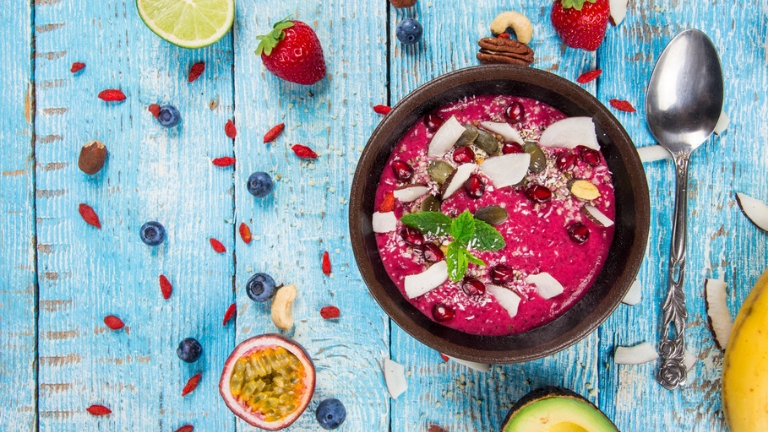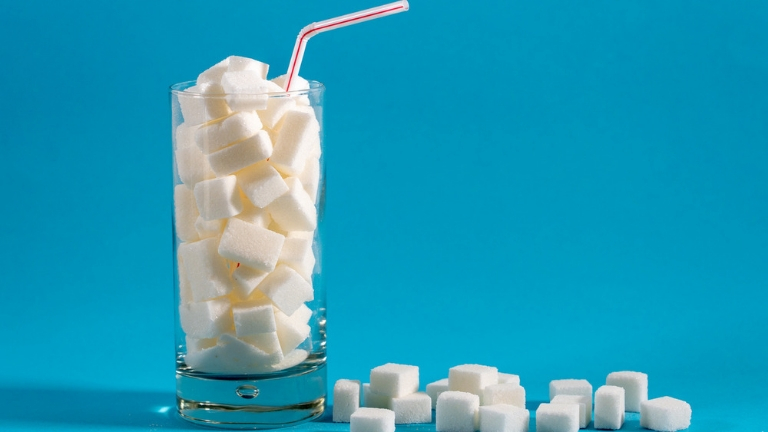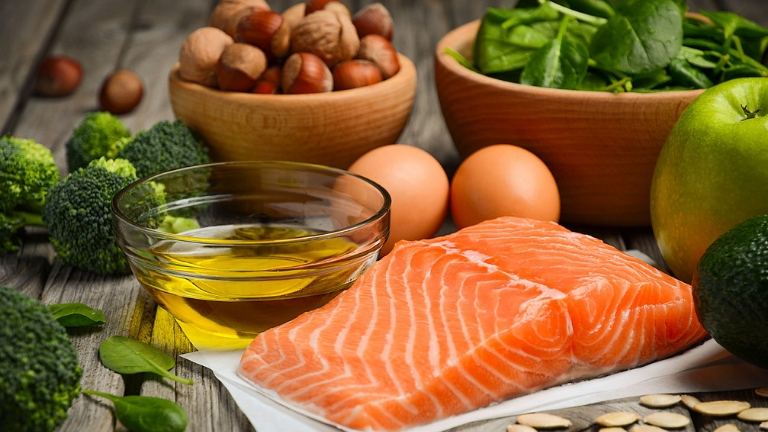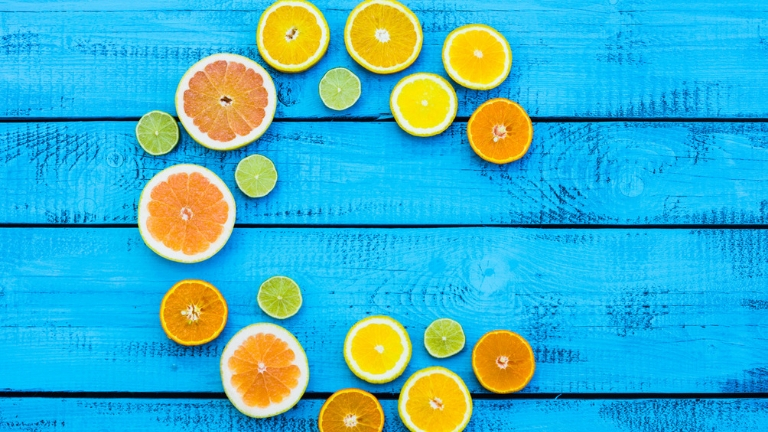What you eat can play a big part in your skin health and at long last, science is starting to agree – editor Anna Magee reports on natural ways to improve your skin and hair
From eczema to acne, psoriasis to unwanted wrinkles, there’s no doubting that most of us will experience a skin woe at some point in our lives.
But where once experts pooh-poohed the idea that what you eat could make any difference to your skin, the last decade has seen a mounting body of evidence showing that our diets, including specific foods and supplements, play a key role in the health of our skin and also, our hair.
In fact as regards acne in particular, in 2010, a review published in the Journal of the American Academy of Dermatology suggested that ‘dermatologists can no longer dismiss the association between diet and acne’.
Since then, further studies have identified lifestyle changes, supplements and foods that can play a key role in the health of our skin and hair.
4 lifestyle changes to help your skin
If you do nothing else, these simple changes can be done right now and are proven to help.
1# Eat more fruits and vegetables
Inflammation is a key culprit in skin problems and it can show as acne, eczema or accelerated ageing.
‘Free radical damage from the environment, especially if you live in a polluted city can accelerate ageing, impair skin cells and exacerbate the inflammatory process,’ says Lisa Beard, Biocare clinical nutritionist. Free radicals are molecules produced when your body breaks down food or is exposed to pollution in the environment, tobacco smoke and radiation.
‘To protect the body’s cells and neutralise these free radicals, it is vital to eat a diet rich in antioxidants,’ she advises. Antioxidants are chemicals found in foods that act as scavengers for those horrendous free radicals – their riches sources are fruits and vegetables with deep pigments of red, yellow, green, orange and purple.
Still confused? In short, free radicals from the atmosphere and your stressful lifestyle damage your skin. Antioxidants in healthy fruits and vegetables repair and protect it.
‘Aim for 5-7 portions of vegetables and fruit daily, not only to provide a rich source of vitamins, minerals and fibre, but also because their rich and colourful plant pigments behave as antioxidants providing cellular defence against the damage caused to skin by free radicals,’ says Beard.
For example, flavonoids; found in rosehip, bilberry and other berries, also rich in vitamin C, have been shown to support circulation and strengthen skin capillaries.
Polyphenols found in green tea (see below) have been shown in research to counteract UV-induced inflammation in the skin.
2# Drink 2 litres of water a day
‘Adequate hydration is also considered vital for skin elasticity,’ says Beard. ‘1.5-2 litres of water spread throughout the day may help achieve this, whilst limiting caffeinated drinks to 1-2 maximum per day.’
One 2015 study published in the journal Clinical Cosmetic Investigative Dermatology found that drinking two litres of water a day could indeed boost skin’s hydration levels and was recommended as a supplementary treatment for people with dry skin conditions.
3# Reduce – or give up – sugar
Excess sugar in the diet can cause an accelerated ageing process in the skin. ‘Protein molecules in the skin cross-link with sugar molecules in a process called glycation,’ explains Beard.
Once this has occurred, the altered proteins are – appropriately, perhaps – called advanced glycation end products (AGEs).
The body does not recognise these as being normal, so it produces antibodies that can cause inflammation in the skin and compromise the skin’s collagen. This may result in wrinkling, loss of elasticity, accelerated ageing and compromised skin barrier function, explains Beard.
This glycation process was first observed in 2005 in people with diabetes, whose bodies couldn’t process sugar correctly.
Since then, other studies have confirmed that diets high in sugar as well as those that favour foods high on the Glycaemic Load (GL) – including refined carbs, crisps, sweets, white pasta and bread – could also have a detrimental effect on skin.
In fact, Beard points out that a couple of small scale studies have found that a low GL diet can help to alleviate acne, together with a reduced intake of dairy. A low GL diet would include lots of fruit, vegetables, wholegrains, pulses and lean proteins such as fish, eggs and chicken.
Indeed, if you have acne, Beard suggests eliminating or, at the very least, reducing refined sugar.
Acne is a common disorder of the sebaceous (oil) glands, resulting in skin lesions such as spots, blackheads, and pimples, mainly on the face and back and may result in permanent scarring.
Sebum (oil in the skin) production is increased by the hormone testosterone, especially its potent metabolite dihydrotestosterone (DHT).
‘High blood glucose levels can have a negative effect on hormonal balance, wound healing and increase the risk of skin ulcers and skin infections,’ she explains.
In addition, high dairy intake and smoking, low zinc levels (see below), and excess adipose tissue can also lead to higher levels of DHT and increase the prevalence of acne, she says.
So, if you have acne, don’t smoke, avoid sugar, eat healthy, whole food and make sure your weight is in a healthy range.
4# Limit alcohol
‘Consuming alcohol regularly adds to our toxic load,’ Beard explains. If your body’s detoxification processes – for example through the liver and your digestive system – are already impaired by constipation, and you’re not eating enough foods such as cruciferous vegetables and other fibre, the body tries to adapt by seeking alternative detoxification routes, such as through the skin.
‘As the body tries to detoxify toxins through the skin, you can experience outbreaks in acne and other skin conditions associated with inflammation such as psoriasis and eczema,’ says Beard.
‘Limiting alcohol to none or one small glass a night, and keep saturated fat from highly processed foods to a minimum,’ she advises.
‘It’s also important to ensure your intake of fibrous vegetables and whole grains is high to help reduce the risk of constipation,’ she says. Examples of fibrous vegetables include all greens such as broccoli, kale and Brussel’s sprouts as well as cauliflower, mange tout and asparagus.
9 nutrients for skin and hair
Now, if you’re a little more committed, you might want to explore the role that specific nutrients can play in your skin.
5# Omega-3s and borage oil – the dryness fix
‘Good fats, especially omega-3 and -6, are required to maintain the structure of our cell membranes, vital to skin structure,’ says Beard.
We generally get enough omega-6 fatty acids, but our diets are usually quite low in omega-3s, which can be found in oily fish, including salmon, mackerel, sardines and nuts and seeds such as flax, hemp and chia. Aim for two serves a week.
Omega-3 and -6 fatty acids also support our body’s anti-inflammatory response, which contributes to inflammatory skin conditions such as acne and eczema. In fact, supplementation for 8-12 weeks with 1000mg of omega-3 fatty acids from fish oil has been found to significantly improve eczema symptoms in one study.
In another study when omega-3 supplementation was combined with gamma-linolenic acid, also known as borage oil, a similar anti-inflammatory response was seen. In fact, research has found that supplementing with borage oil can lead to reductions in skin inflammation, dryness, scaliness and itch in eczema patients, Beard points out.
What to do: Aim for 2-3 portions of oily fish a week and if you want to supplement, try Biocare’s Mega EPA £10.96 (with each tablet providing 524mg EPA and 375mg DHA).
6# Green tea – the acne reducer
Is there anything green tea can’t do? Catechins, which are compounds found in green tea, have been shown to inhibit sebum production by helping modulate the production of testosterone, which may as a result help reduce the likelihood of developing acne, Chinese research has found.
Meanwhile, polyphenols which are antioxidant chemicals found in green tea have been shown to counteract inflammation in the skin that has been induced by exposure to UV light. One 2012 paper listed the potential effects of green tea on skin as anti-inflammatory, antioxidant, UV protective and even anti-cancer.
What to do: Aim to drink up to six cups of green tea daily. Read Healthista’s latest review of the best-tasting green teas.
7# Vitamin C – the collagen booster
‘Healthy skin contains high concentrations of vitamin C, which is essential to stimulating collagen production and also in building antioxidant protection against UV-induced photodamage,’ says Beard.
Indeed, according to a review by dermatologists at Oregon State University, ‘Oral supplementation with vitamin C may help prevent UV-induced skin damage, and/or skin wrinkling and may also benefit dry skin and wound healing, especially when it’s combined with other skin-friendly nutrients such as vitamin E and zinc.’
‘A daily dosage of 500-1000mg vitamin C is recommended, alongside a diet rich in vitamin C foods, for example 5-7 portions of vegetables/fruits, together with bioflavonoids such as rosehip,’ Beard suggests.
Try Biocare Vitamin C Rosehip Powder £15.95 – each dose provides 1000mg of vaitmin C and zinc (see below)
8# Biotin – the hair nutrient no one is talking about
Also known as vitamin B7, biotin is found in foods such as egg yolks, bananas, soy beans, cauliflower, salmon, wheatgerm oil and wholewheat bread and it’s incredibly beneficial for hair – but so few of us know about it.
Fascinatingly, a study published in 2016 in the International Journal of Trichology reported that a staggering of 38 per cent of women with hair loss were found to have a biotin deficiency.
You can take it as a supplement found in BioCare’s Hair and Nail Complex or opt for eating more biotin rich foods. Editor Anna Magee swears biotin supplements helped grow her hair longer and thicker.
9# Zinc – the one that helps hair and acne
Along with recurrent infections, hair loss is one of the key symptoms of zinc deficiency.
Zinc is essential to good cellular replication and protein absorption and these functions are essential to thick, glossy hair.
A 2013 study in the Annals of Dermatology on 312 people with hair loss found that all had lower zinc concentrations in their blood than those in a control group.
The good news? A 2009 study in the same journal found that supplementing with zinc daily for 12 weeks was enough for 66 per cent of the patients in the trial to see an improvement.
It may support your skin health too. ‘Zinc may play a role in support skin, reduce inflammation and help encourage healing,’ says Beard.
If you get acne specifically, zinc could help. Staggeringly, one study in the Journal of the Turkish Academy of Dermatology 54 per cent of those with acne had low zinc levels.
People with zinc deficiency may also have signs of generally scabby skin that shows sores and marks that don’t heal or take time to heal as zinc is essential to wound healing.
More Healthista Content:
Could a probiotic help you sleep?
15 easy mushroom recipes for a tasty antioxidant boost
The berry that can make you look younger
Like this article? Sign up to our newsletter to get more articles like this delivered straight to your inbox.

























































